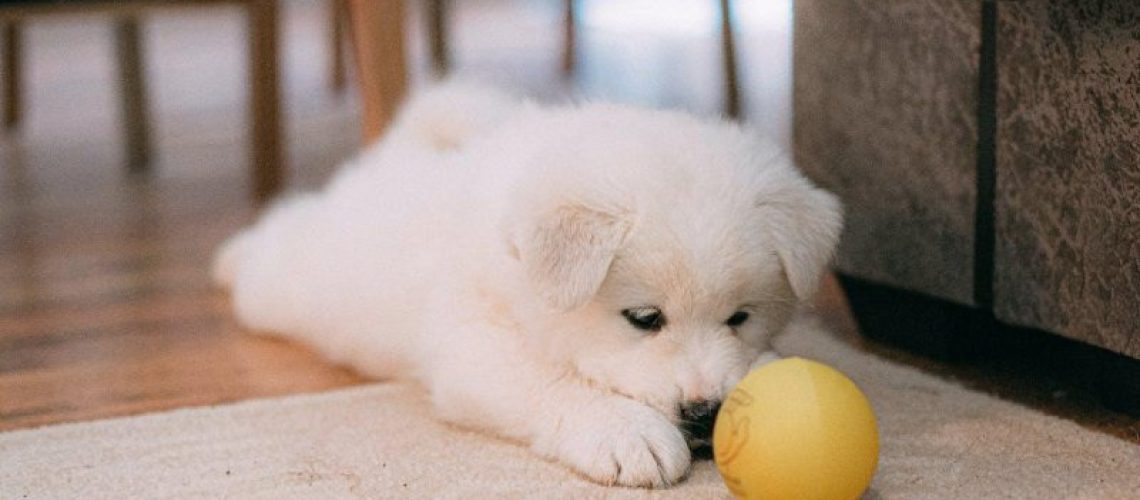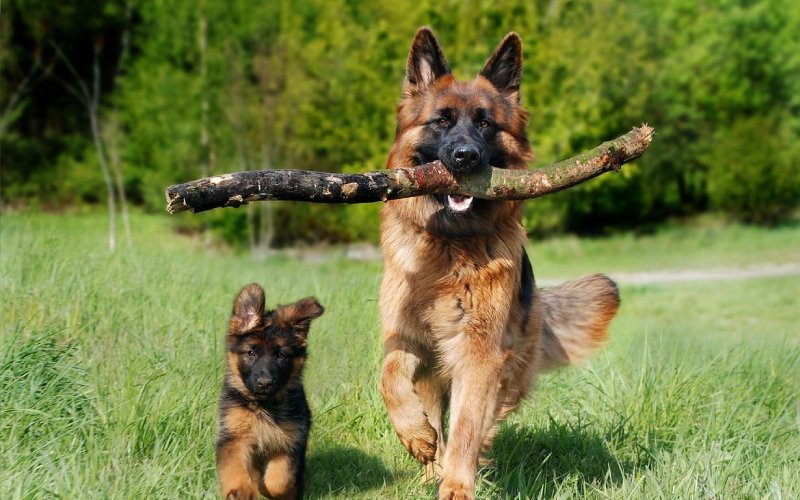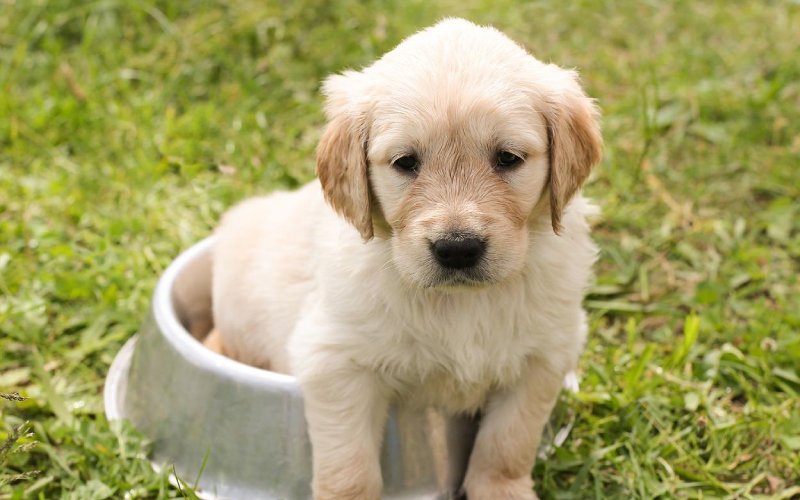At Off Leash K9 Training, Gainesville, we get asked quite a bit about new puppies! gainesvilleolk9.com
Welcome to the tail-wagging world of puppy socialization! Did you know that the experiences of a puppy in their first few months can shape their behavior for life? There’s this golden window for socializing that happens from 3 to 12 weeks old. This is when they’re super curious about everything and not really scared of much. It’s a lot more than just playing tag with other pups at the park; good socialization touches on everything from how brave they are to how well they pick up new tricks.
Ready to turn your pup into the social butterfly of the dog world? Keep reading to unlock the secrets of puppy socialization!
Why is Puppy Socialization Important?
Socializing your puppy is a critical part of their education that sets the tone for their behavior into adulthood. If a puppy is given the chance to socialize properly, they’re on track to become a confident adult dog. But if we miss out on socializing them, we could be looking at serious behavioral problems ranging from aggression to severe fearfulness. It’s an essential step for ensuring a well-behaved adult dog and for your own long-term comfort.
Behavioral Outcomes of Puppy Socialization:
|
Well-Socialized Puppies |
Poorly-Socialized Puppies |
|
Confident in new situations |
Fearful or aggressive in unfamiliar settings |
|
Friendly towards humans and other animals |
Prone to anxiety and may display avoidance behaviors |
|
Adaptable to changing environments |
Struggle with adaptability, potentially leading to destructive behaviors |
|
Less likely to develop phobias |
Higher risk of developing phobias and stress-related issues |
|
Better coping mechanisms for stress |
Poor stress management leads to potential health issues |
The Benefits of Socialization
Think of puppy socialization as equipping your young dog with a life toolkit. Let’s break down the top five advantages:
- Confidence: They gain confidence. Socialized puppies turn into curious explorers, not thrown off by life’s noisy surprises.
- Behavioral Flexibility: These pups are like social chameleons – they’re versatile, smoothly shifting from a quiet night into the excitement of a dog park.
- Reduced Aggression: Less fear means less aggression. When your puppy is socialized, they’re less likely to feel trapped or scared in new situations, which means they’re less likely to snap.
- Safety: They’re safer companions. A pup that knows its way around is a safer bet for people and other pets to be around.
- Bonding: Socialization deepens your connection with your puppy, as you navigate and discover the world’s complexities together.
When to Start Socializing Your Puppy
Deciding when to start socializing your puppy is tricky, especially when you weigh it against the timing for their vaccines. Most experts agree there’s a golden period for this—it starts when a puppy is 3 weeks old and usually ends by 12 weeks. During this crucial phase, puppies are the most open to new things, which shapes how they’ll act and how friendly they’ll be later on.
If you’re keen to get going with socialization classes, you can begin when your puppy is about 7 to 8 weeks old, as long as they’ve had their first set of shots a week before the class starts. Here’s a basic plan for early socialization:
- Vaccine Check: Make sure your puppy has their first vaccines.
- At Home: Begin at your place, getting your puppy used to different noises and types of floors.
- Meet People: Have your puppy meet lots of different people, and make sure it’s a good experience.
- Playdates: Set up times for your puppy to play with other dogs that are healthy and have their shots.
- Out and About: Take your puppy to places that are safe for them, so they can see new things and hear new sounds.
Keeping Up With Socialization
Just because the first socialization stage is over doesn’t mean you stop there. You’ve got to keep it up—puppies do best when they regularly get to practice what they’ve learned in a friendly way. It’s super important to keep things positive; that way, your puppy will keep learning and become more confident without feeling scared or upset.
How to Socialize Your Puppy
In your home: This place is where your puppy starts learning, facing all sorts of new sights, noises, and surfaces. They’ll get to grips with everything from the noise of kitchenware to how different the floor can feel. Your family is super important in this stage, being their first-ever group. Having guests over in a controlled way builds up their ability to socialize, teaching them how to tell who’s a friend and how to greet politely instead of with too much excitement.
When it comes to puppy classes: These aren’t just about making friends. They’re vital for teaching good behavior and are also places where lots of good things happen for doing the right stuff. But these classes aren’t only for your little pup to pick up new skills; you’ll learn plenty, too. They help make the relationship between you and your puppy strong, where you’re the leader and the safe place in a world that’s all new to them.
Puppy Playdates and Outings: When you set up meetings with other young dogs or calm, grown-up dogs, it does wonders for your puppy’s ability to get along with others. These meetings are super valuable—they learn the complex doggy language of barks and tail movements. Taking your puppy to different spots, like stores that welcome pets or peaceful parks, introduces them to a bigger world than just your garden, making sure they become confident grown-up dogs who are up for any adventure.
Tips for Successful Socialization
Starting socialization with your puppy is a process filled with patience, empathy, and a bit of clever planning. To socialize successfully, make sure every new situation is full of good vibes. That means you should meet every little woof and leap into something new with lots of cheers and sometimes a treat as a solid sign that they’re doing great.
Positive Reinforcement Techniques:
- Treats: A small snack for good behavior can make a big difference.
- Praise: Telling your puppy they’re good helps them know they’re doing well.
- Play: Reward good interactions with a round of their favorite game.
- Patience: Let your puppy discover things at their own speed, no rush.
- Consistency: Keep up the good work regularly to raise a puppy who’s good with others.
Watching for signs of fear is important, and puppies will definitely show you how they feel with their body language. If your puppy is hiding their tail, flattening their ears, or backing off, they’re telling you they’re not okay. At that point, it’s key to take a step back, look at the situation again, and give them the chance to chill out if that’s what they need.
Signs of Fear and Corresponding Actions:
|
Signs of Fear |
Actions to Take |
|
Tucked Tail |
Provide a safe space and comfort |
|
Whining or Barking |
Remove from the stressful situation |
|
Hiding or Cowering |
Reintroduce the stimulus slowly at a later time |
|
Pinned Ears |
Offer treats and reassurance to build positive associations |
|
Shaking |
Consult a veterinarian if fear persists |
Vaccinations and Socialization
Finding the perfect mix of getting your puppy out into the world and keeping them safe from sickness is pretty tricky—it’s like trying to balance on a thin wire. You need a good plan and to think things through. Sure, you want all their shots done for the best protection, but don’t let that stop you from starting to introduce them to new friends and places.
Here’s a quick rundown of spots where your not-yet-fully-shot-up puppy can start getting to know the world:
- Your Home: This is a spot where you’re in charge of who and what your puppy meets.
- Friends’ Homes: Pick places that are tidy and where any other pets have had their shots.
- Puppy Classes: Look for classes that welcome puppies who’ve just started getting their shots.
- Private Yards: Great for meeting other dogs, as long as the area’s secure and there aren’t any unknown animals around.
Safe Ways to Socialize a Partially Vaccinated Puppy
When you’re introducing your partly vaccinated puppy to new experiences, you want to play it safe but still let them see a lot of different things. You should stick to places you can control and where they’re unlikely to catch anything, like having a few people over to your place or hanging out in a pal’s pest-free garden. Steer clear of busy spots like dog parks until they’ve got all their shots.
Conclusion
To sum it up, never underestimate how important it is to get your puppy used to all sorts of people and pooches. This is the stuff that’s going to make your life with your dog full of happiness and peace. For anyone who loves their dog, making sure they get this experience early on is key to helping them grow up to be friendly and confident. It takes time, patience, and a whole lot of affection, but the payoff? It’s huge. You’re going to have a furry friend who’s ready to join you for all the fun that’s out there, for years to come. Give us a call and we can tell you about the different programs we can offer you on the new addition to your family!



